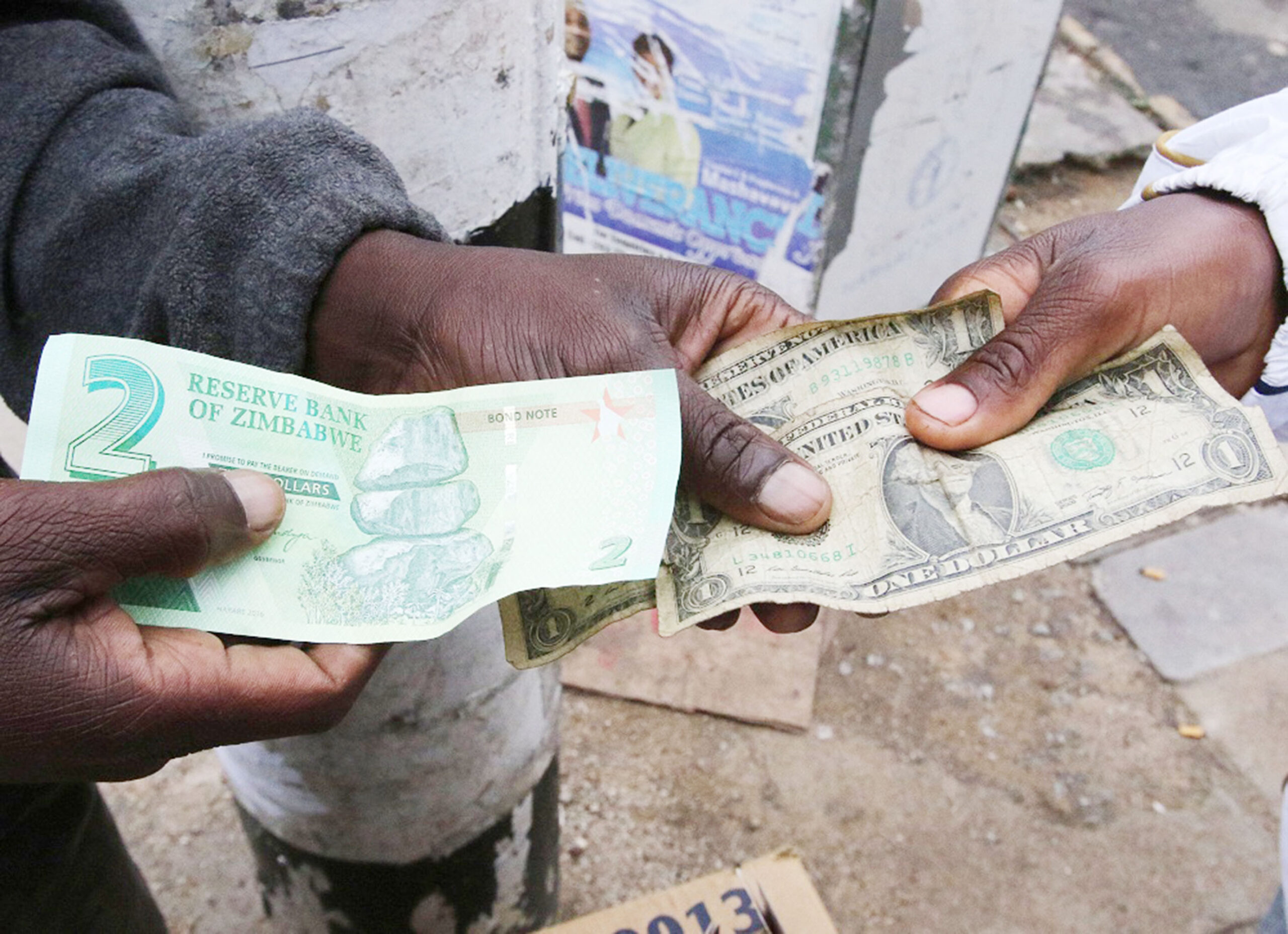‘Stop stoking parallel market volatility’
GOVERNMENT has said it will not hesitate to tighten monetary measures to deal with the resurgent speculative parallel rates, which pose a serious threat to market stability and tend to frustrate economic gains achieved so far.
While bold policy measures have been implemented to foster price and exchange rate stability in the economy, evidenced by declining inflation, which has since tumbled from a peak of 30,7 percent monthly in June 2022 to less than one percent from January to March this year, Government has expressed concern over resurgent market indiscipline.
Despite tight monetary and fiscal policy stance, insistence on value for money on Government procurement and effective surveillance by the Financial Intelligence Unit, consumers have of late started feeling the creeping pinch of parallel market indexed jump in pricing and obscene speculative rates that are way above the official exchange mark of about US$1:ZWL$1 000.
Vice President, Dr Constantino Chiwenga and Finance and Economic Development Minister, Professor Mthuli Ncube, spoke strongly about the issue while engaging delegates during the Zimbabwe International Trade Fair (ZITF) International Business Conference in Bulawayo yesterday.
Although transitory in nature given the rising demand for foreign currency as a store of value in response to rising foreign currency inflows in the economy, Dr Chiwenga said wild parallel market rates have no justification.
In 2022 alone, Zimbabwe forex inflows clocked US$11,6 billion, up from a historic average of about US$5-6 billion, said VP Chiwenga, adding that the country has also been recording stable current account surpluses since 2019, which is a critical condition for currency stability.
“As such, Government is staying the course of the current monetary and fiscal policy measures, which have proved effective in restoring and sustaining price and exchange rate stability,” he said.
“In addition the Reserve Bank is expanding investment options for corporates and individuals with excess ZWL balances for value preservation purposes by complementing the current issuance of physical gold coins with gold backed digital products.”
VP Chiwenga tours some of the ZITF stands
The VP said this initiative will allow gold coins to be widely traded, and in the process, expand tradable assets in the economy for store-of-value purposes and reduce speculative demand for foreign currency.
Responding to the same issue during his address on capital markets as a source of investment resources for industrialization, Prof Ncube said the domestic economy has performed well despite external shocks and reiterated that key fundamentals were stable with no justification for speculative behavior by market players.
He, however, said the spike in the parallel rate in the past few weeks will compel the Government to take drastic measures to tame the scourge and protect consumers while preserving gains achieved so far.
When the parallel rates rose astronomically last year, the Government raised bank interest rates to 200 percent but reduced these in response to business lobbying when it observed cross rates had stabilised.
“I did say that we have responded to inflation domestically by raising interest rates. The interest rates have been quite high and of late we had started bringing down the interest rate. But I’m now wondering the recent hike in the exchange rates in other markets. Should I increase the interest rates?
“Please stop pushing that parallel market, because what we will do is increase the interest rates to 200 percent and beyond,” Prof Ncube warned.
“Because that is what we know, so desist from operating in that market and pushing up the parallel rate. It is because this is very costly to everyone.”
The Treasury boss said while Zimbabwe has a high-risk lending profile, linked to negative factors such as sanctions, the Government has managed to secure loans from South Africa, which have de-risked the country’s lending rates. This is a positive development and proof that the private sector can innovate to access international funding, said the minister, adding that it was encouraging to observe that locally produced products were now dominating the market.
“Now 70 percent of our goods are domestically produced, which speaks to successful value-addition but this needs to be exacerbated through the right funding sources,” he said.
In order to boost domestic output, Prof Ncube said businesses can utilize Government-assisted funding options as well as harness global financial markets, domestic capital markets, and private equity and investor capital from pension funds.
Further, he said Government is rolling out several tax incentives to buttress economic growth, which is a big relief to businesses.
“We give rebates to the pharmaceutical sector, clothing sector and textile sector. So, make use of these tax rebates,” he said.
“We have duty suspension rebates on the agricultural sector, including fencing for farming. If you put a fence around your farming area you should come and claim your tax, if you drill a borehole you are allowed to claim for that borehole.
“It’s a genuine investment, it’s not some social activity that you do on weekends. There are a lot of other rebates and I encourage the private sector to take full advantage of the cash injection by the Government in the form of tax incentives into the industrialisation agenda.”
Prof Ncube said the development of the Victoria Falls offshore financial sector was progressing well and was expected to impact positively on the economy in the long run. Already the Victoria Falls Stock Exchange (VFEX) is recording milestones as it continues to attract more top-end companies.
There is also more scope for funding of the productive sector through Special Drawing Rights supported by revolving funds, which have been allocated to different sectors of the economy.-chronicle










